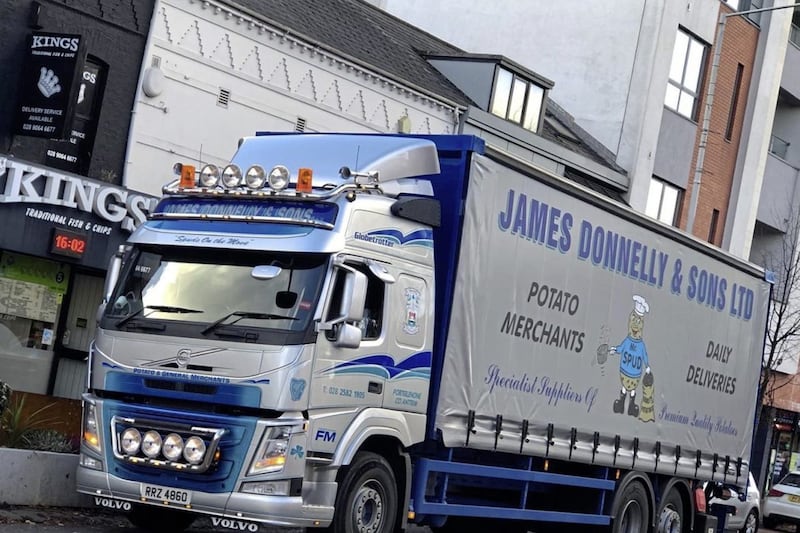NORTHERN Ireland civil servants may have to write to businesses to warn them about the impact of Brexit.
Informed sources have told The Irish News of serious concerns about how the British government has communicated with businesses in the north.
In the midst of "confused messages" from the government, civil servants in the north are understood to be considering whether they need to contact businesses directly.
Sources said civil servants will "reserve the right" to contact businesses warning them of changes including potential tariffs.
"There is a lack of clarity around the communications messages and we are at the moment waiting to see what the latest UK government campaign will be. We're quite clear that if there are areas locally where the message isn't clear enough then we will do something ourselves."
The Irish government has directly contacted businesses which trade with the UK to warn them about steps they need to take to prepare for Brexit.
It is the British government's responsibility to communicate with businesses but confusion over what will actually happen after the UK leaves the European Union has left many people in the dark.
"Obviously the UK government is running a large communications campaign," an informed source said.
"Because of some of the uncertainty around policy, particularly around what's going to happen at the border, I'm not sure that our businesses are as well-prepared as they should be."
Source said that, as well as a lack of clarity, some businesses were experiencing 'Brexit fatigue'.
"I think we marched them up to the top of the hill in advance of March 29 and a lot of companies put effort into stockpiling and obviously we had to march them back down the hill. There are a lot of companies who incurred costs doing that and there is a reluctance this time to incur that additional cost."
Invest NI is giving advice to many businesses about the impact of Brexit, including customs, tariffs and taxation; transport and logistics and questions about the employment of workers from the EU.
A spokeswoman said support has included "a dedicated online resource; advice and guidance to over 1,500 representatives at our Brexit workshops, plus access 1:1 specialist advice; an online assessment tool completed by over 1,300 companies; and £1.5m in Brexit Preparation Grants approved".
"We will continue to offer the necessary support pre- and post-Brexit to help NI businesses grow," she said.
Invest NI has a dedicated Brexit section on its website and also runs business advice site nibusinessinfo.co.uk
However, sources said some businesses still believed that a no-deal Brexit "won't happen".
"Some businesses are taking the view that they are not going to do anything until they know exactly what they need to do."
It is understood that the 8,000-odd small to medium businesses (SMEs) which operate in the north are posing the greatest concern.
"A lot may feel its not going to affect them but if you're an architect who does work in the south will you still be able to work in Dublin?"
Last month, InterTradeIreland launched a new campaign aimed at encouraging cross-border traders to plan for Brexit.
The body, which advises small and medium-sized companies, said it was concerned by a survey which found only 6 per cent of businesses in Ireland are ready for cashflow and liquidity problems if the UK leaves the EU without a deal on October 31.








